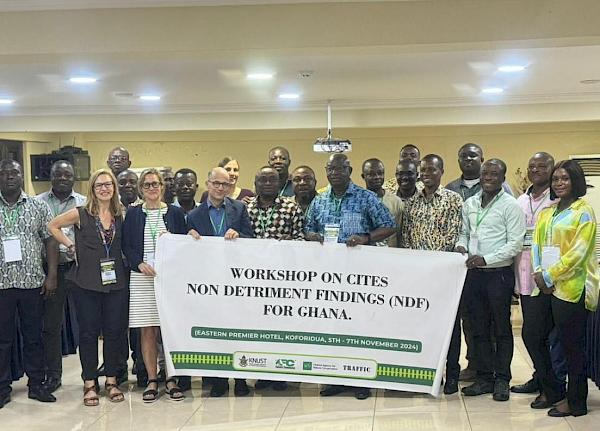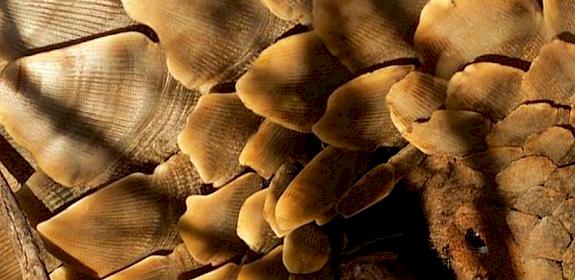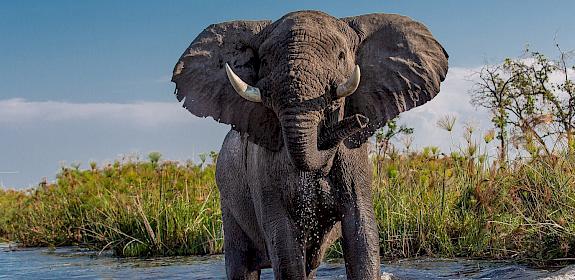Ghana takes bold steps to protect its natural resources
With more than a third of the world’s tree species sliding towards extinction, and amidst the escalating climate and biodiversity crises, Ghana is stepping up efforts to protect its timber and support sustainable trade.
Specifically, this effort focuses on ensuring that timber exports are sustainable and don’t harm precious species, especially those now protected under CITES Appendix II like species of African mahogany (Khaya spp.), which are native to West and Central Africa.
Ensuring that timber exports do not threaten these trees is not only essential for biodiversity conservation but also supporting local livelihoods and Ghana’s economy.
This week, experts from TRAFFIC, Germany’s Federal Agency for Nature Conservation (BfN), CITES authorities in Ghana, other relevant divisions of Ghana’s Forestry Commission, and the Timber Industry gathered in Koforidua for a hands-on workshop funded by BfN with financial means from the Federal Environment Ministry of Germany (BMUV) designed to equip Ghana’s CITES authorities with essential tools for sustainable timber management.
Hosted by Ghana’s Kwame Nkrumah University of Science and Technology (KNUST) and the Forestry Commission in collaboration with TRAFFIC and BfN, the event centred on the newly revised 9-Step Guidance on Non-Detriment Findings (NDFs) for timber species. This guidance helps countries ensure that trade in CITES-listed species does not harm their populations in the wild.
we are committed to providing Parties like Ghana with the technical tools to effectively implement CITES. By using science-based methods, such as the 9-Step Guidance, we are helping to ensure that timber trade benefits species, ecosystems and local communities alike.”
Paola Mosig Reidl - Co-lead of Data Research and Enforcement Support at TRAFFIC
Why timber trade in Ghana matters
With African mahogany and other timber species under threat, Ghana’s commitment to sustainable trade is essential for safeguarding these valuable resources and the people who most depend upon them. By using the 9-Step Guidance, Ghanaian authorities can now assess the impact of timber exports with scientific precision, ensuring that trade does not decrease the respective tree populations but benefits both local communities and the forests they depend on.
Empowering authorities for science-based decisions
Participants engaged in practical exercises, analysing data gaps and applying the 9-Step Guidance to three key Khaya species: K. ivorensis, K. anthotheca, and K. grandifoliola.
This workshop is an important milestone in Ghana’s commitment to sustainable forest management. By equipping authorities with the tools and knowledge to conduct scientifically solid NDFs, we’re ensuring that Khaya species will continue to thrive, benefiting both biodiversity and local communities.”
Prof. Samuel Oppong, Professor of Wildlife and Range Management at KNUST
Next steps: building on workshop insights
The knowledge gained and gaps identified at this workshop will guide future fieldwork in Ghana, focused on gathering essential data for Khaya species. This data will play a vital role in maintaining sustainable trade practices in line with CITES regulations, securing Ghana’s forests for future generations.
About Federal Agency for Nature Conservation (BfN)

Supported by the Federal Agency for Nature Conservation (BfN) with funds from the Federal Ministry for the Environment Germany (BMUV)





